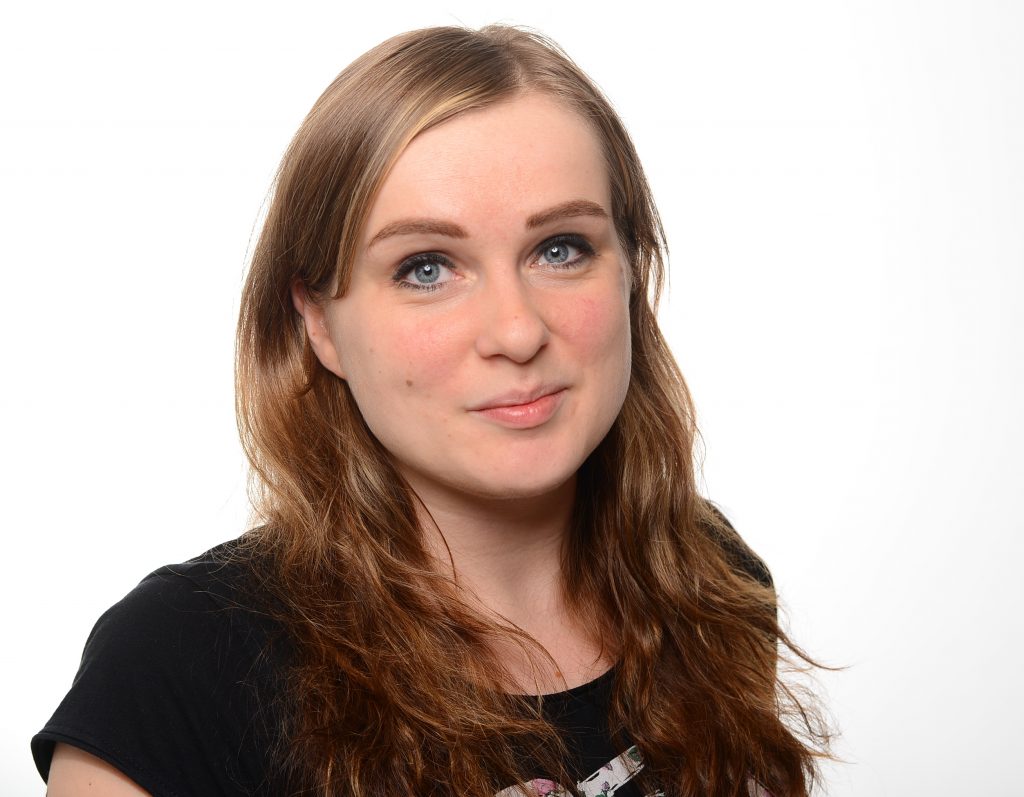Starting in the fall, Alina Kirillova will be a new professor for Materials Science and Engineering (MSE). Alina brings extensive experience and research to the department. The following Q and A is a chance to get to know Kirillova before she arrives on campus.
Background and history
“I was born and raised in Riga, Latvia. I got my B.Sc. and M.Sc. degrees in Chemistry from the University of Latvia. During my master studies, I had a chance to pursue an internship and then work on my master thesis in the Leibniz Institute of Polymer Research Dresden (Dresden, Germany). I continued working there on my PhD thesis and received my PhD degree in Chemistry from the Dresden University of Technology under the guidance of Dr. Alla Synytska and Prof. Manfred Stamm.

Ever since my PhD work, I’ve continued to work with polymers and polymer-based materials. The focus of my PhD work were stimuli-responsive hybrid Janus particles that had an inorganic core and two distinct types of polymer shells grafted to the opposite sides of the core. I’ve investigated their synthesis, self-assembly and applications, which included interfacial catalysis, as well as anti-fouling and anti-icing coatings.
After my PhD studies, I moved to the United States to receive postdoctoral training at the University of Georgia in Athens under the guidance of Prof. Leonid Ionov. My work was focused on bioprinting of cell-laden hydrogels and 4D biofabrication of self-folding hydrogel tubes that could serve as artificial blood vessels. I then moved on to work as a postdoctoral researcher at Duke University in the group of Prof. Ken Gall in the Department of Mechanical Engineering and Materials Science, and I am also working in collaboration with the group of Prof. Matthew L. Becker in the Department of Chemistry. My work is focused on the chemistry and mechanical behavior of new biomaterials, as well as 3D printing of light-curable biodegradable polymers.
My primary expertise is in smart polymer-based materials and biomaterials with an emphasis on the chemistry and responsiveness of materials as well as their mechanical behavior and translation. My training lies at the interface of materials science, chemistry, mechanical engineering, and polymer physics. I have an extensive background in the synthesis and characterization of polymers, including various polymerization techniques and chemical synthesis methods, and evaluation and improvement of their advanced mechanical properties, such as fatigue performance, shape-changing properties, strength, stiffness and toughness.”
Choosing Iowa State
“Since my PhD studies, I have wanted to pursue an academic career and I have been working towards this goal, receiving as much academic and research experience as I could throughout my graduate and postdoctoral training. Iowa State University stood out to me as a large academic institution with a lot of focus on the engineering fields, emphasizing the commitment to improving the human condition through creativity and innovation and seeking to find solutions for real problems.
The position I pursued at Iowa State was in the Department of Materials Science and Engineering, which I thought could be a perfect fit for someone with my background. I envision materials science and the creation of new materials and investigation of their properties and applications as one of the main goals of my research. What also stood out to me in MSE, aside from it being one of the top materials departments in the nation, is that the student to faculty ratio in the Department is 7:1, which I thought would align perfectly with my vision to communicate with students on a regular basis, helping guide them throughout their journey at the University.”
Research specialties
“My research interests are focused on the generation of advanced polymer-based materials and biomaterials with an emphasis on their mechanical robustness, responsiveness, and multi-functionality. This embraces a broad set of systems, ranging from soft hydrogels to tougher polymers and bioceramics, and integrates knowledge from diverse fields, such as chemistry, polymer physics, materials science, and mechanical engineering. The directions my future research group will endeavor will be focused on shape-memory and shape-changing polymers, bioprinting of mechanically robust materials, and development of advanced bioadhesives. Synergy between the different projects will be achieved by combining chemistry and mechanical engineering principles to attain chemically functional robust materials with superior mechanical performance.”
Looking ahead
“I am very excited to start my independent academic journey at Iowa State University. I can’t think of a better place to establish my future laboratory and, in general, a sustained research and teaching program. I am excited about getting to know and working with my colleagues in the Department and the community at ISU. I am also excited to move to Ames, a charming city I have heard so many good things about.”
What students can expect
“As a teacher, I strive to inspire learning, advance knowledge, and engage students in critical thinking and problem solving. My personal love for science and encountering interaction with genuinely curious student minds are the main driving forces of my passion to teach. My primary objective as a teacher is to provide the students with a solid scientific foundation and a set of communication and analytical skills that they can use as building blocks to target more complex problems in the future. I believe it is essential to inspire the students to go beyond the classroom and think outside the box, so that in the future they would be able to assess scientific issues not solely with facts but also with a creative and open mind. I strive to invite students of various backgrounds and disciplines to a dialogue between learning materials science and engineering and building their own unique scientific identity.
“My goal is to provide a welcoming and inclusive atmosphere in the classroom and in my laboratory, where the students could truly shine. I am also open to a constant adjustment of my approaches and techniques to improve myself as a teacher.”
